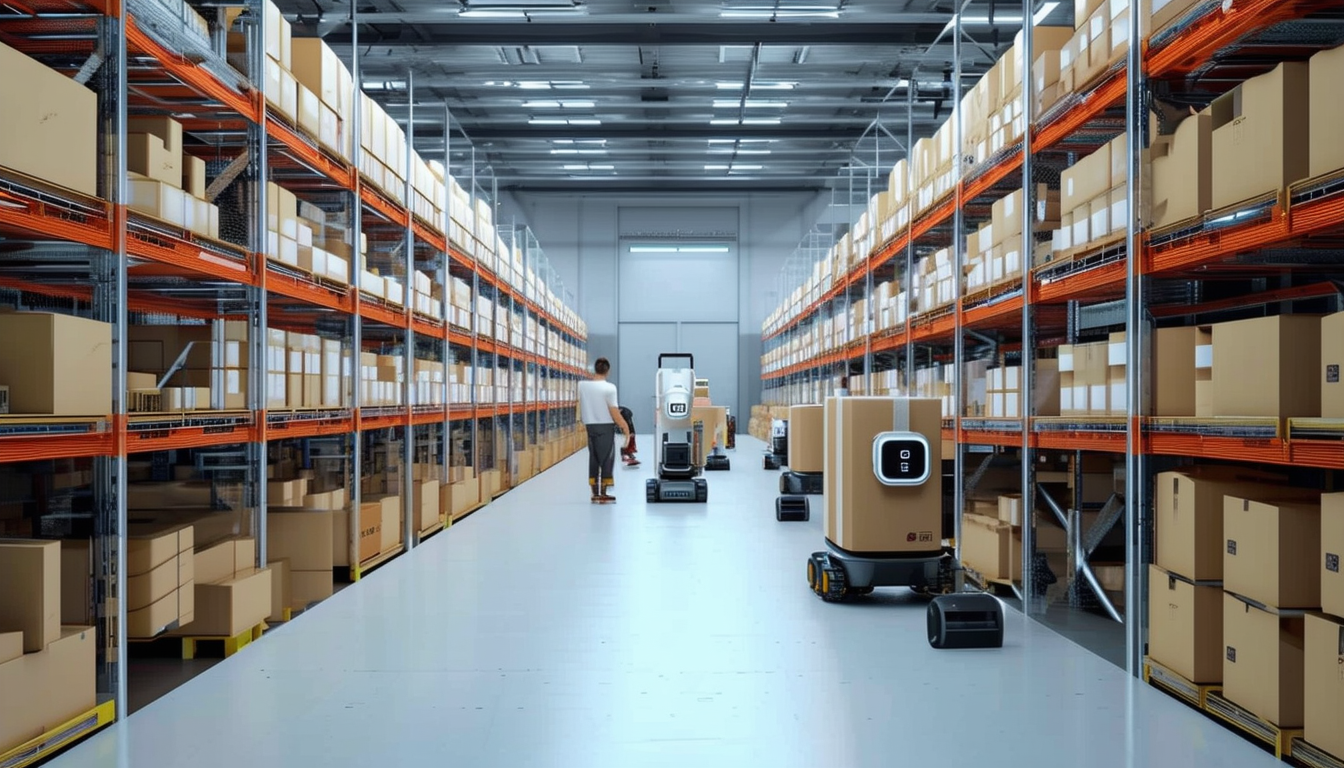In today's fast-paced digital world, choosing the right technology for your business can make or...
AI in Supply Chain: Practical Applications

Discover how artificial intelligence is streamlining supply chain operations, from logistics to demand forecasting, making processes more efficient and reliable.
Smarter Inventory Tracking
Keeping track of inventory manually is a nightmare. It’s easy to miscount stock, miss low inventory alerts, or over-order items that aren’t selling. AI takes the guesswork out of it by analyzing real-time data to manage stock levels automatically.
- AI systems track what’s selling, what’s sitting, and when it’s time to reorder.
- Automated alerts prevent stockouts and overstocking, helping businesses stay ahead of demand.
- Warehouse robots, guided by AI, speed up packing and order fulfillment with pinpoint accuracy.
This means fewer wasted resources and better efficiency across the board.
Predicting Demand Instead of Guessing
One of the biggest challenges in supply chain management is knowing how much inventory to have on hand. Guess wrong, and you’re either sitting on too much stock or struggling to fulfill orders.
AI-powered demand forecasting looks at past sales, seasonal trends, and external factors (like market shifts or even weather patterns) to predict what customers will need before they even know it themselves.
With better demand forecasting, businesses can:
✅ Avoid lost sales due to stock shortages
✅ Reduce storage costs from excess inventory
✅ Plan smarter promotions based on expected demand
Simply put, AI helps businesses make decisions based on data, not just gut feelings.
Smoother Logistics and Faster Deliveries
Getting products from Point A to Point B isn’t always straightforward. Delays, traffic, weather, and last-minute changes can throw everything off. AI optimizes shipping routes, fleet management, and delivery schedules to cut down on wasted time and fuel.
- AI-powered route planning helps trucks and delivery vehicles take the fastest, most efficient paths.
- Predictive maintenance flags vehicle issues before they cause costly breakdowns.
- Automated warehouse systems speed up loading and unloading, reducing wait times.
With AI keeping logistics on track, customers get their orders faster, and companies save on unnecessary shipping costs.
Better Supply Chain Visibility
One of the most frustrating things in supply chain management is not knowing what’s happening in real time.Where’s the shipment? How much inventory is actually in stock? When will a supplier’s order arrive?
AI-powered automation gives businesses a clear, up-to-the-minute view of their entire supply chain.
- Live tracking systems show where shipments are at any moment.
- AI-powered dashboards monitor supplier performance, flagging potential delays early.
- Automated reporting keeps everyone on the same page without endless back-and-forth emails.
Instead of scrambling to figure things out, businesses have the right data at the right time—so they can fix problems before they become disasters.
Final Thoughts: AI is Making Supply Chains Work Smarter
AI isn’t replacing people—it’s helping them do their jobs better. By automating repetitive tasks, improving accuracy, and keeping operations running smoothly, AI-powered supply chain management saves time, cuts costs, and reduces headaches for businesses of all sizes.
The companies that embrace automation will have a competitive edge, delivering products faster, managing inventory smarter, and making data-driven decisions that keep them ahead of the game.
So the question is: Is your supply chain running as efficiently as it could be?


